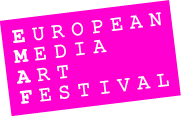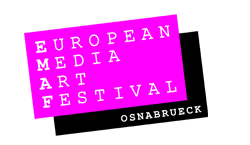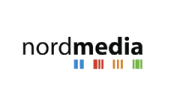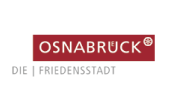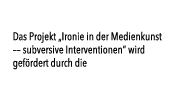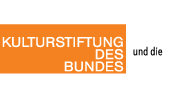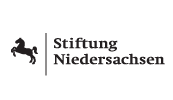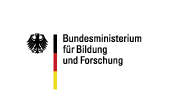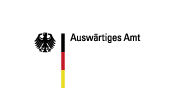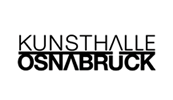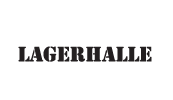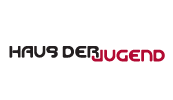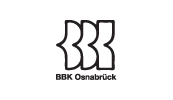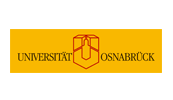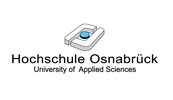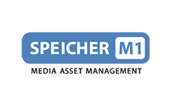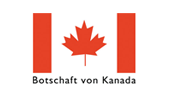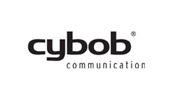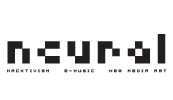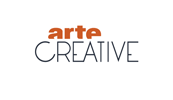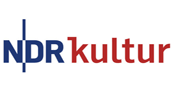Conference
Scholars, media theoreticians, journalists and artists will explore irony in Media Art in their keynote lectures at the festival conference. This approach has increasingly evolved as an artistic strategy, particularly with the advent of the so-called new media. It additionally embracescontemplating current economic, political and social conditions. In this connection, the speakers will also refer to contemporary debates, and broach the issue of the development and context of ironic and witty presentations in the Middle East.
Another key area of debate is developments in the online sector, where new services cause significant changes in the use of media, creating a challenge for cinema and TV.
Tactics of Mask Design: Subversive Identities after Snowden
Prof. Dr. Geert Lovink (NL)
Geert Lovink talks about developments in the internet, associated utopias and their ironic, political and subversive implications.
Geert Lovink is considered one of the most brilliant media theorists of our time. Ever since they emerged, Geert Lovink has been attempting to monitor and help shape the utopias that were to guide the development of the internet ? as an activist, organiser of media festivals and, finally, as a scholar.
24 April, 13:00 h, Haus der Jugend
Artist talk
Paolo Cirio (IT / US)
On the small group of Caribbean islands, the Cayman Islands, it is easy for financial investors, tax avoiders and speculators to deposit or conceal their money. The artist and activist Paolo Cirio addresses this financial loophole in his project entitled “Loophole for All” (see exhibition). He stole the identity of 200,000 companies registered on the Cayman Islands, and ironically offers them on his website. Paolo Cirio has also drawn attention to himself in other campaigns and interventions involving copyright, the information economy, militarism and practiced democracy.
24 April, 14:00 h, Haus der Jugend
Andrea Natella – in conversation with Alessandro Ludovico
Andrea Natella (IT)
Andrea Natella is an italian sociologist, marketing strategist, cultural jamming artist and creative director of guerrigliamarketing.it, a fake advertising agency, which designs subversive hoaxes and creates weird art projects exploring pornography, politics, and advertising.
He will speak about his guerrilla communication strategies between marketing and fiction, using irony as dissimulation and social fiction as method. He has built different fake online platforms, selling surreal but perfectly plausible marketing services and had finally successfully fooled the “Vice”-magazines website into featuring his project "This Man" as real.
24 April, 15:30 h, Haus der Jugend
We Grow Money,
We Eat Money,
We Shit Money
Shu Lea Cheang (TW / US / FR)
The media artist Shu Lea Cheang was invited as guest chief editor for the Issue No. 76 of the French digital cultural magazine MCD. Spanning 33 articles, projects are presented that explore social or economic topics in an ironic or subversive manner. Shu Lea Cheang will address the three chapters of the magazine and present an exciting selection of projects. The English online version can be downloaded for € 9: www.digitalmcd.com
24 April, 16:30 h, Haus der Jugend
Artist Talk - TRANSMISSION MACHINE
Istvan Kantor (CA)
The Canadian media artist of Hungarian origin describes himself as a “guerrilla-political activist” who, in his work, connects artistic and social disobedience, whilst questioning and mercilessly caricaturising his own strategies.
In his ironic lecture, Kantor will use the jumpcut style to present some of his topics and subjects, including the six o’clock theory, Neoism, Monty Cantsin, Liquid-ID, X-factor and body modification.
(See exhibition: “Forbidden Blood”)
24 April, 17:30 h, Haus der Jugend
Irony in the Middle East / Part I
Nat Muller (NL)
In her presentation Nat Muller will show how the use of irony and humour operates in contemporary art from the Middle East. Irony and humour function in multiple ways as, amongst others, a strategy of dissent, a way to utter commentary on socio-political issues, counter certain types of representation, or a way to retell certain stories in a new way. In a region known for its "bad news" irony and humour are of course also exit valves that provide much-needed comic relief.
25 April, 13:00 h, Haus der Jugend
Irony in the Middle East / Part II
Karl Sharro (GB)
Karl Sharro is an architect, satirist and commentator on the Middle East.
He will speak about his blog Karl reMarks, which is a Middle East political and cultural blog with occasional forays into satire. It has been featured in The Guardian, The Economist, The Wall Street Journal, the BBC, Public Radio International, Al-Jazeera, The Dailiy Star and Al Monitor.
25 April, 14:00 h, Haus der Jugend
Conference Special: Online Media
Television Upended
Kathy Rae Huffman (US)
An alternate TV has emerged online, and has become deeply established. Guaranteeing a new era of mobility, of viewing and sharing, this phenomena is taking place around the world. Online TV is now an instant communication reality and it has impacted ‘the industry’ of television, film, and fine art, replacing the fixed television programmes and screens of the past. What are these thousands of Vimeo and YouTube channels, streaming shows? Who are the producers? What does the Internet have to do with the future of television? How has video art played a role and where are the artists today?
25 April, 15:30 h, Haus der Jugend
TV online vs. Online TV in Spanien
Maria Pallier (ES)
Altered consumer behaviour and the ever-increasing presence of new digital providers has also had a profound effect on the media landscape in Spain. For example, traditional television broadcasting companies have been compelled not only to place their offerings online, but also to expand them.
Using comparative examples from various online offerings, the current situation will be analysed and the question asked as to the extent to which, as a result of this devleopment, it is at all possible to maintain an educational mandate and standard of quality - criteria that, on the other hand, would have the potential to have a differentiating effect in the future.
25 April, 16:30 h, Haus der Jugend
Who owns the future and how will we be able to live from film making?
C. Cay Wesnigk (DE)
As early as in 2001, the German documentary Association AG DOK started developing a structure to enable filmmakers to make best use of the internet’s promise and moreover, we founded the OnlineFILM AG. The irony today is that pirates first took over the market, and now international multi billion dollar companies have become our competitors.
We want to discuss: how to confront the pirates and how to bargain with the market in order to retain our online rights to make best use of them.
25 April, 17:30 h, Haus der Jugend
